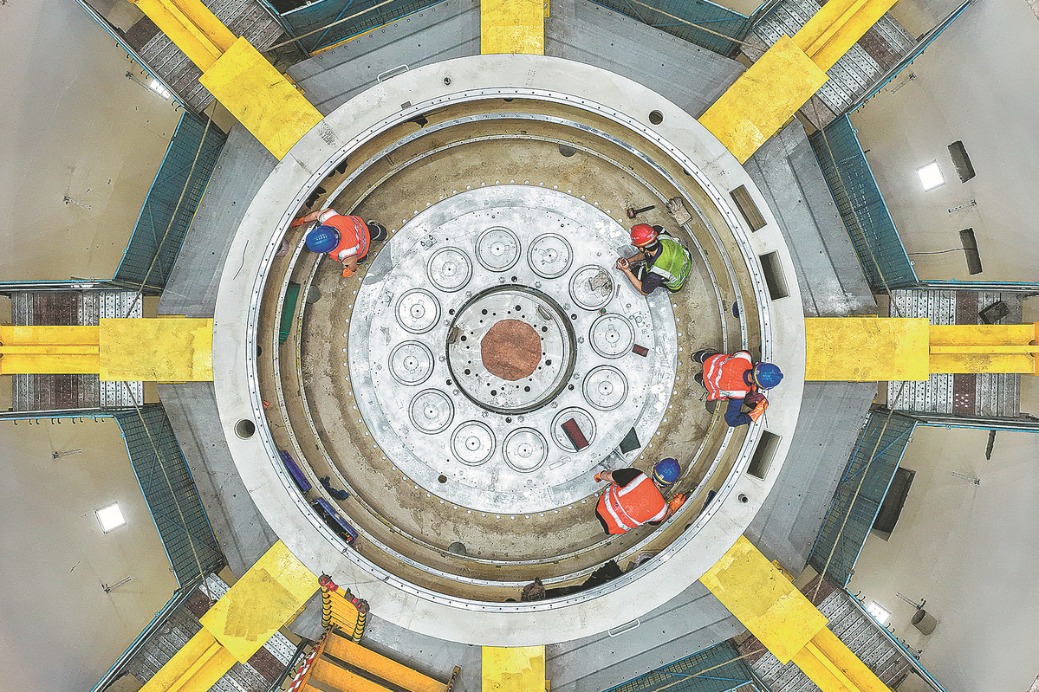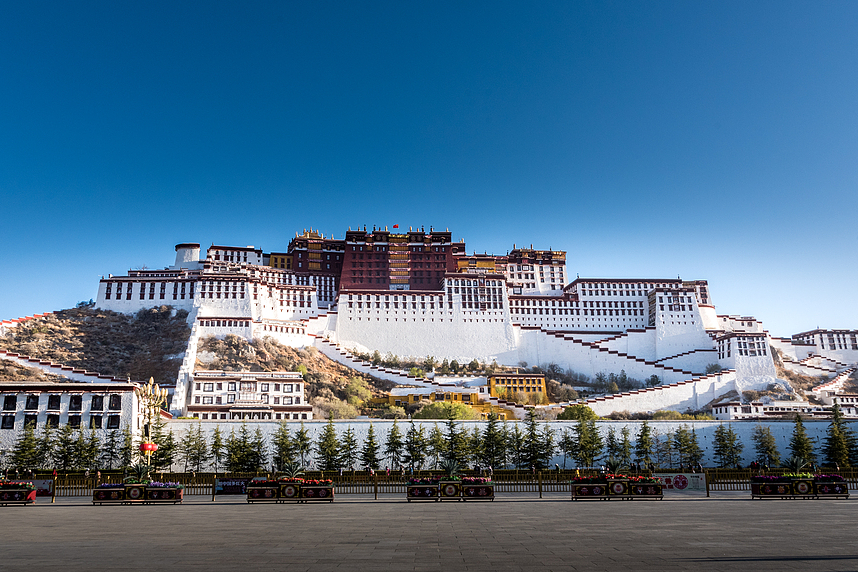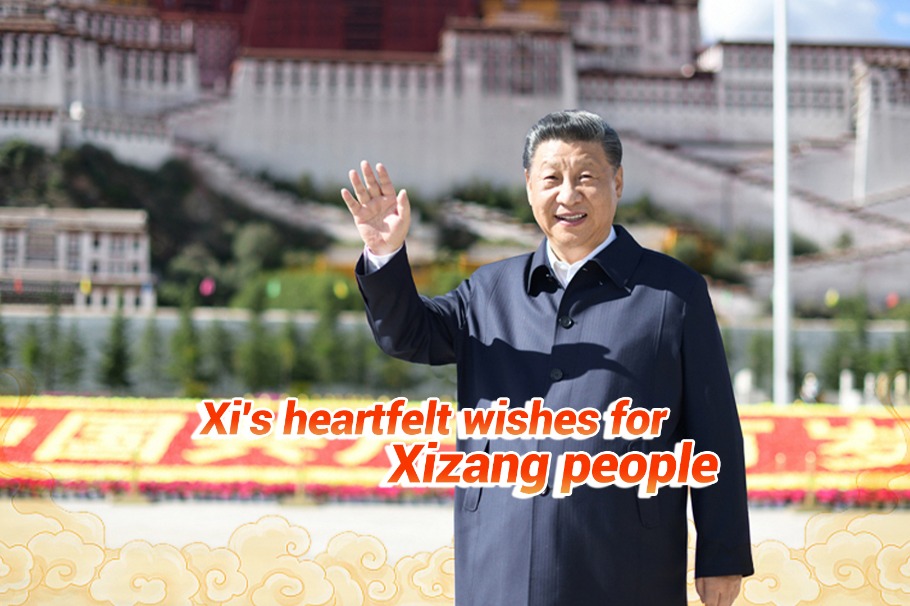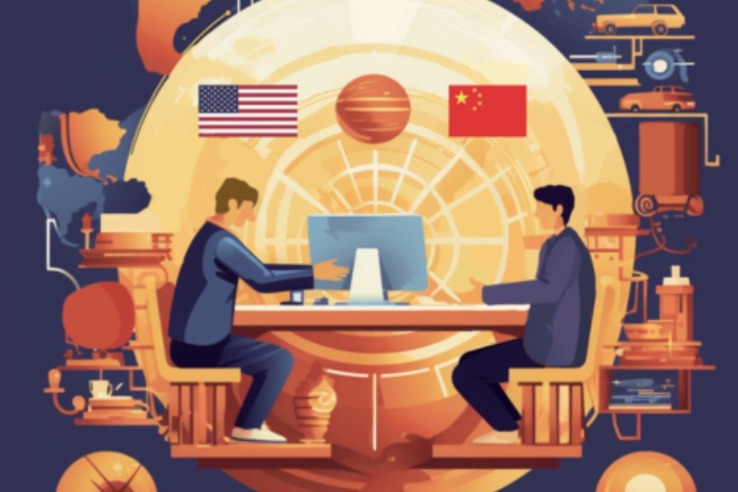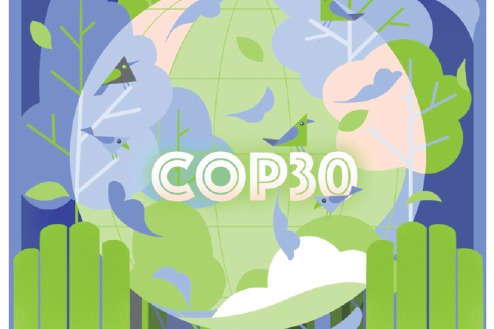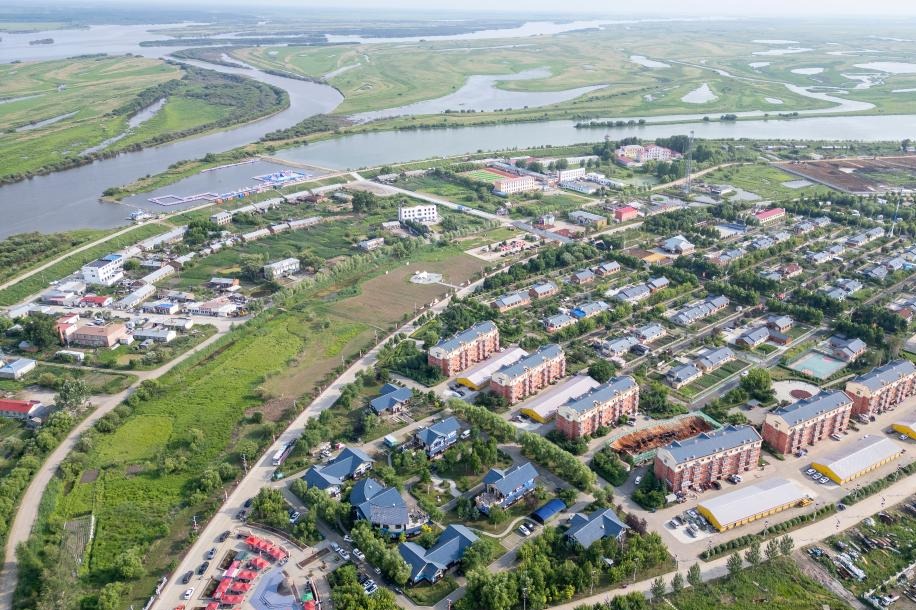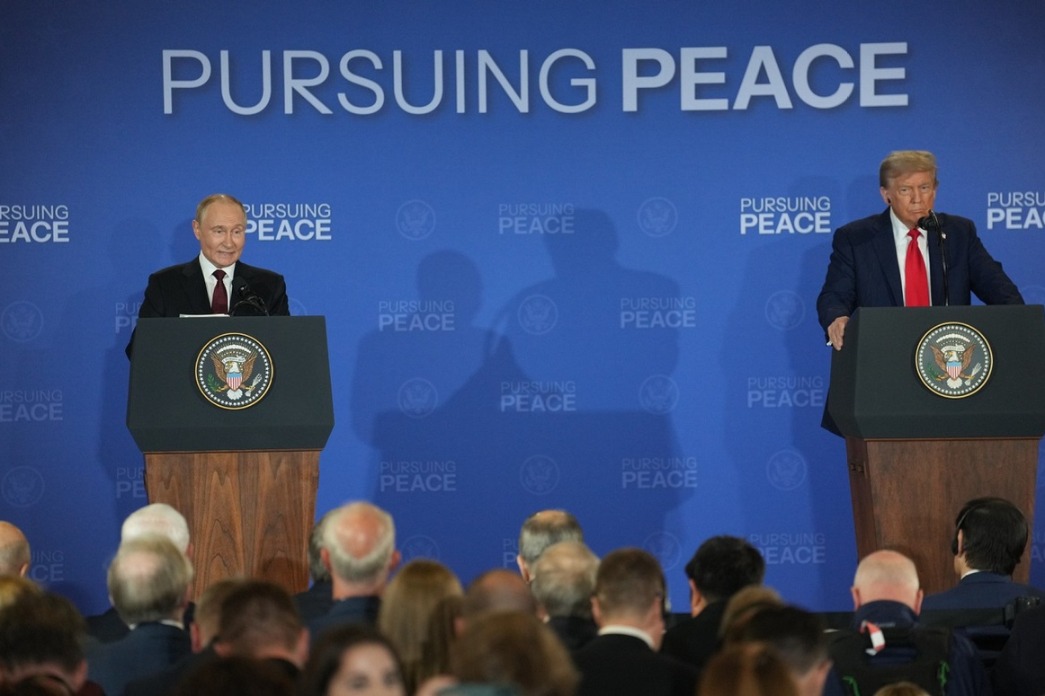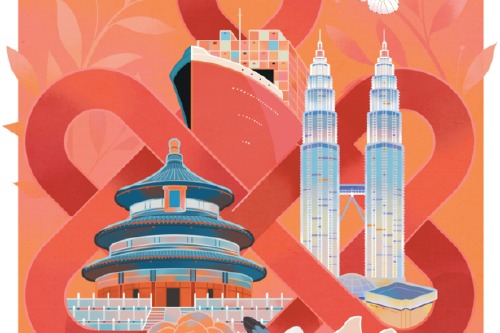What would the world look like without China?

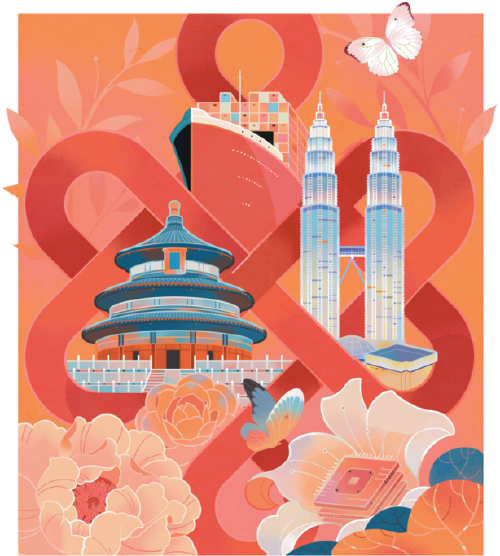
As global tensions continue to rise, some Western politicians have been quick to blame the world's troubles on China. When accusations outpace understanding, debate often hits a dead end. So perhaps it's time to ask a different question — not who to blame, but what could be lost. What would the world look like without China?
A more turbulent world
As Hegel once observed, "Peoples and governments have never learned anything from history." Nearly eight decades after the last world war, peace remains fragile. From Ukraine to Gaza, artillery fire continues to scar humanity.
Amid global unrest, China has stood as a steadfast advocate for peace. Its commitment to peace is forged in the crucible of its history — foreign invasion, national humiliation, and the long road to rejuvenation. It understands profoundly that peace is not given but earned.
As a founding architect of the post-WWII international order, China was the first country to sign the UN Charter. It remains the only permanent member of the UN Security Council to pledge a no-first-use nuclear policy, and the only major power to stay clear of military conflicts in the 21st century. Peaceful development is even written into China's Constitution.
In 2023, when China assumed the presidency of the UN Security Council, it presented delegates with a Luban Lock, a Chinese puzzle, which is a metaphor for peace — easy to break, hard to rebuild.
China's commitment to peace is rooted in its history. From Zhang Qian's Silk Road missions to Zheng He's 15th-century voyages, China's legacy is one of exchange, not conquest. If China had not come in goodwill, for instance, if Zheng He's fleet had carried weapons instead of gifts, the world could have easily fallen into a state of "might makes right".
Today, this tradition continues. Over the past 35 years, China has deployed over 50,000 peacekeepers to more than 20 conflict zones, including the Democratic Republic of the Congo, Lebanon, and South Sudan. Seventeen peacekeepers have made the ultimate sacrifice. Without China's efforts, ceasefires may falter, and critical supplies may never reach those in need.
In the diplomatic arena, China plays a constructive role as a key mediator. It facilitated the Saudi-Iran rapprochement in Beijing and brokered talks among Palestinian factions. On the Russia-Ukraine conflict, it worked with fellow developing countries to propose a six-point consensus on political settlement and set up the Group of Friends for Peace to deescalate tensions. As a stabilizing force among nuclear powers, China has helped maintain the global strategic equilibrium. Without China, the world would be a more precarious place.
A less developed world
Many global challenges stem from underdevelopment. Today, over 700 million people are still struggling with hunger, and more than 300 million rely on humanitarian aid. When growth stagnates, conflict and extremism emerge. When development is uneven, populism, protectionism, and unilateralism follow, dragging the global economy into dead ends.
Growing steadily, the Chinese economy has long been an anchor of the world economy, contributing roughly 30 percent of global growth for many consecutive years. Without China's input, the global economy could be in a worse situation.
Amid trade wars and rising protectionism, China remains the world's most efficient manufacturing hub. Its absence would mean broken supply chains, higher costs, slower deliveries, and more uncertainty — ultimately hitting consumers everywhere.
China's Belt and Road Initiative has delivered tangible benefits to partner countries. Landmark projects such as Indonesia's Jakarta-Bandung High-Speed Railway and the China-Laos Railway have transformed regional mobility, China-Europe freight trains have accelerated cross-border trade, and infrastructure projects like Mombasa-Nairobi Standard Gauge Railway (SGR) and Croatia's Chinese-built Peljesac Bridge have revitalized local economies and strengthened connectivity. These projects have not just reshaped the trajectory of development — they have changed people's lives.
China is also a key driver of global green transition — not through words, but through actions. Without China's commitment to carbon peaking and carbon neutrality goals, global temperatures would rise by an additional 0.2 to 0.3 C, and the world would be further away from its net-zero target. Moreover, China supplies 80 percent of the world's solar panels and 70 percent of wind power equipment, slashing renewable costs by 60 to 80 percent and making clean energy affordable worldwide.
Despite external headwinds, China's economy continued to demonstrate remarkable momentum and resilience in 2025. In the first half of the year, its GDP grew by 5.3 percent year-on-year, exceeding last year's average rate and the target rate for this year. Trade performance was equally striking. Total imports and exports exceeded 20 trillion yuan, a record high. China achieved trade growth with more than 190 countries and kept trade volume at above 50 billion yuan with 61 countries, which speaks to the breadth and depth of its global economic engagement.
Recent reports by UK-based asset manager Baillie Gifford underscored the Chinese economy's remarkable resilience and dynamism in the face of external pressure, highlighting its strides in industrial upgrading, technological innovation, and emerging sectors like green manufacturing, AI, and social e-commerce.
A more unjust world
The true measure of a major power lies not in its strength, but in its vision and responsibility. China's worldview is shaped by a deep-rooted belief in fairness and justice. It has consistently stood by its commitments, supported smaller nations, and upheld global equity.
While the United States withdrew from international agreements and undermined global norms, China launched global initiatives on development, security, and civilization, offering steady leadership in turbulent times.
China actively champions developing nations through platforms such as BRICS, the Shanghai Cooperation Organization, and the Forum on China-Africa Cooperation. The establishment of the International Organization for Mediation in Hong Kong aims to offer a fairer, more inclusive mechanism, delivering dialogue-based dispute resolution and ensuring the Global South a seat at the table.
Though China and the United States are often seen as the world's two leading powers, their approach to global affairs differ sharply. China rejects zero-sum competition and great-power rivalry. Its restraint has helped prevent the world from falling into the "Thucydides trap" where major powers clash and smaller nations suffer.
Imagine if China adopted a "China First" doctrine, suppressing competitors and asserting dominance, or if it pursued the Monroe-style policy in Asia. Imagine if it wielded economic coercion — imposing tariffs, cutting supply chains, and forcing decoupling. Or if it built exclusive blocs and promoted ideological confrontation. The result could be a fractured global economy and a new Cold War.
Fortunately, China has chosen a peaceful path that may not be the easiest one: mediating conflicts, promoting development, and standing up for fairness. These efforts require patience, wisdom, and resilience. They are not easy — but that is precisely why they matter. When the path is right, China pursues it unwaveringly. History will judge fairly: the harder the journey, the brighter the legacy.
The author is a commentator on international affairs. The views don't necessarily represent those of China Daily.
If you have a specific expertise, or would like to share your thought about our stories, then send us your writings at opinion@chinadaily.com.cn, and comment@chinadaily.com.cn.
















